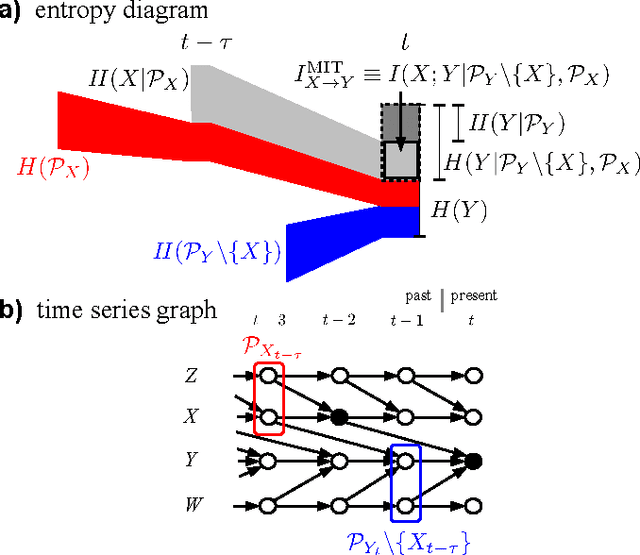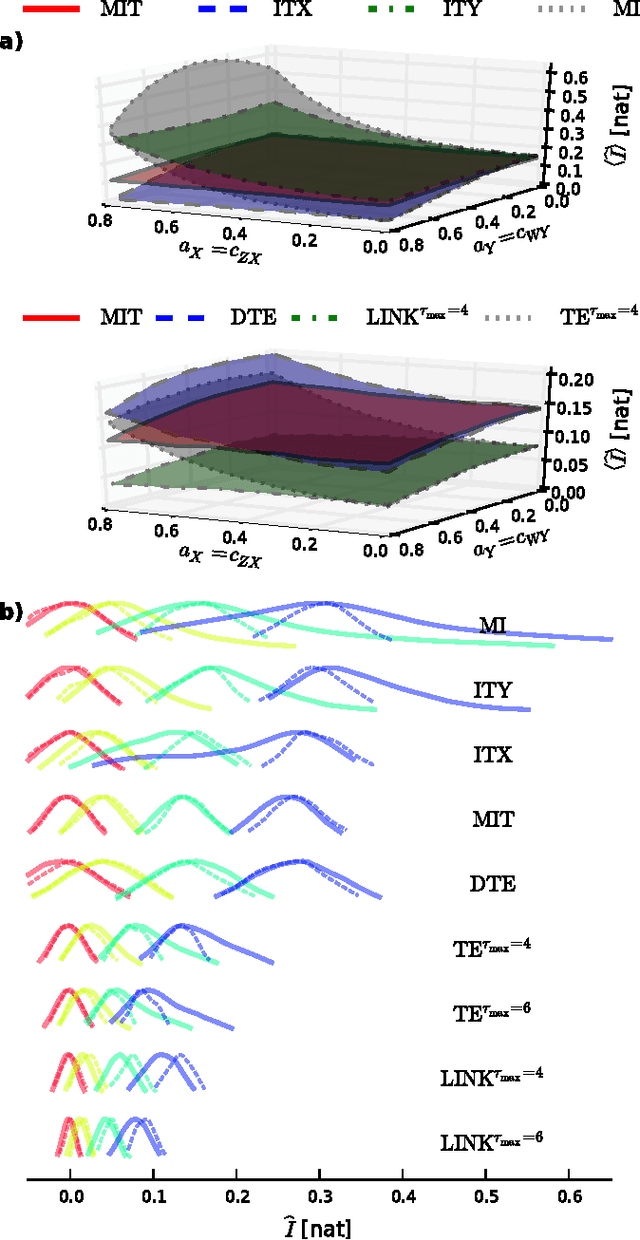Quantifying Causal Coupling Strength: A Lag-specific Measure For Multivariate Time Series Related To Transfer Entropy
Paper and Code
Nov 21, 2012



While it is an important problem to identify the existence of causal associations between two components of a multivariate time series, a topic addressed in Runge et al. (2012), it is even more important to assess the strength of their association in a meaningful way. In the present article we focus on the problem of defining a meaningful coupling strength using information theoretic measures and demonstrate the short-comings of the well-known mutual information and transfer entropy. Instead, we propose a certain time-delayed conditional mutual information, the momentary information transfer (MIT), as a measure of association that is general, causal and lag-specific, reflects a well interpretable notion of coupling strength and is practically computable. MIT is based on the fundamental concept of source entropy, which we utilize to yield a notion of coupling strength that is, compared to mutual information and transfer entropy, well interpretable, in that for many cases it solely depends on the interaction of the two components at a certain lag. In particular, MIT is thus in many cases able to exclude the misleading influence of autodependency within a process in an information-theoretic way. We formalize and prove this idea analytically and numerically for a general class of nonlinear stochastic processes and illustrate the potential of MIT on climatological data.
 Add to Chrome
Add to Chrome Add to Firefox
Add to Firefox Add to Edge
Add to Edge